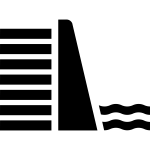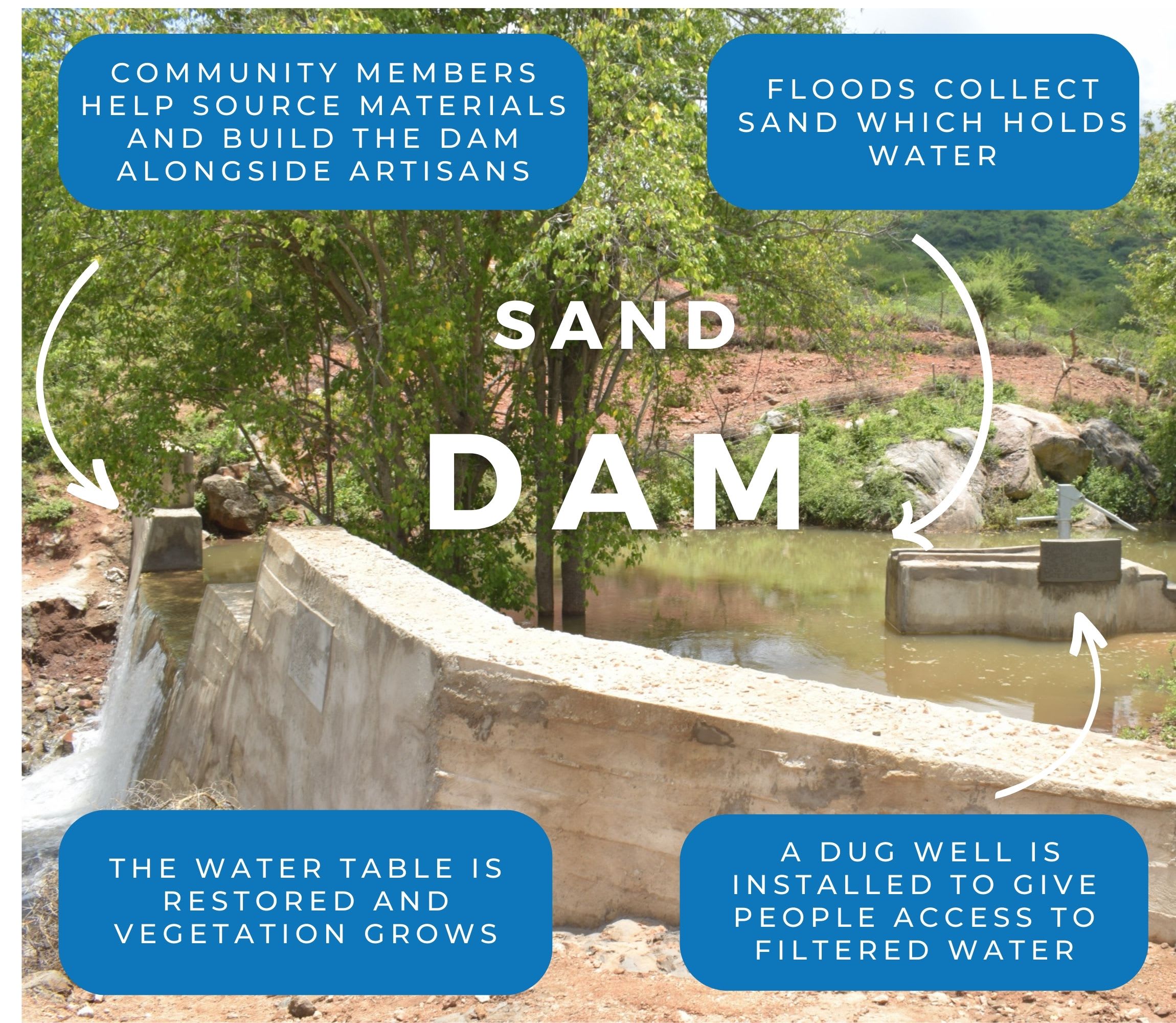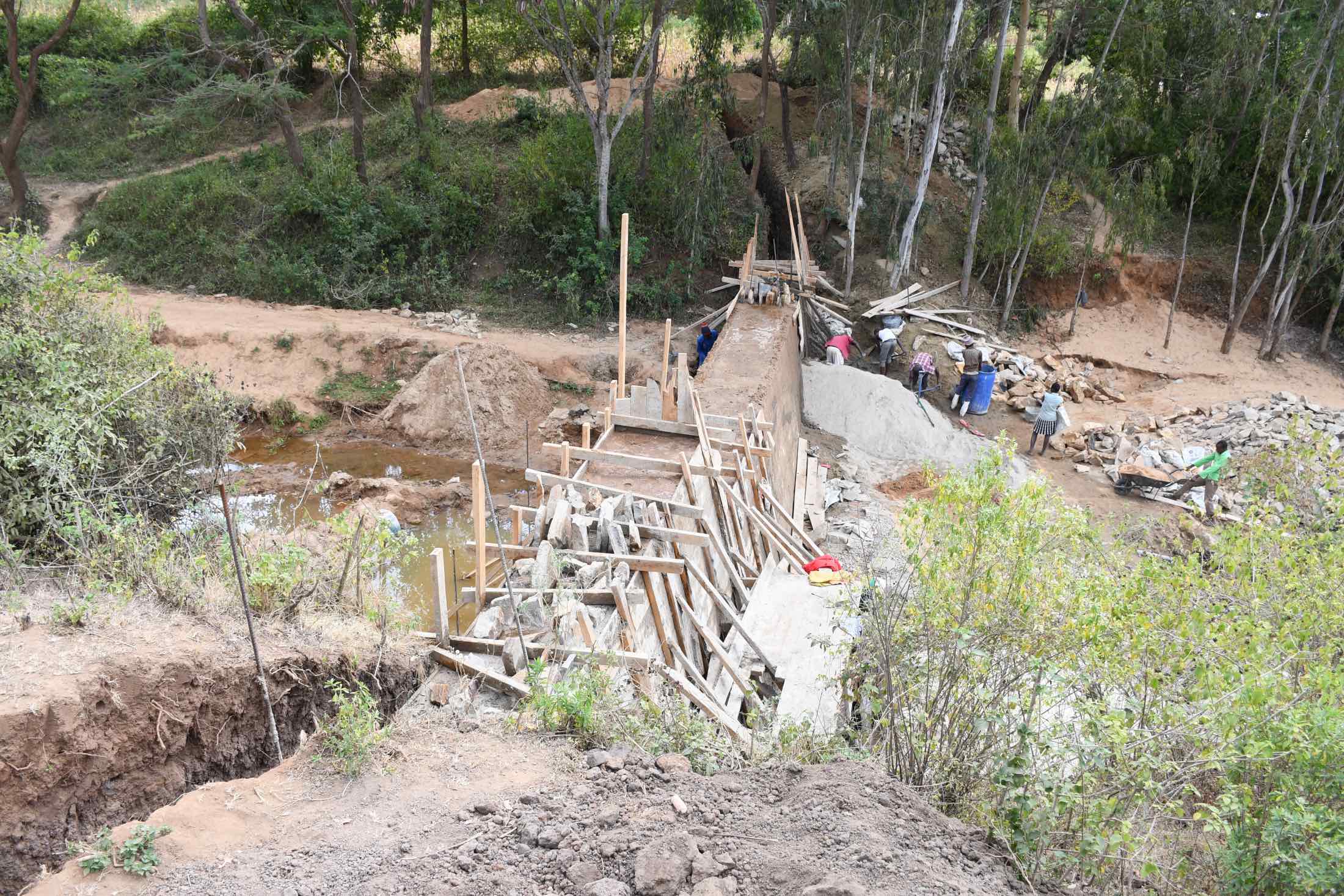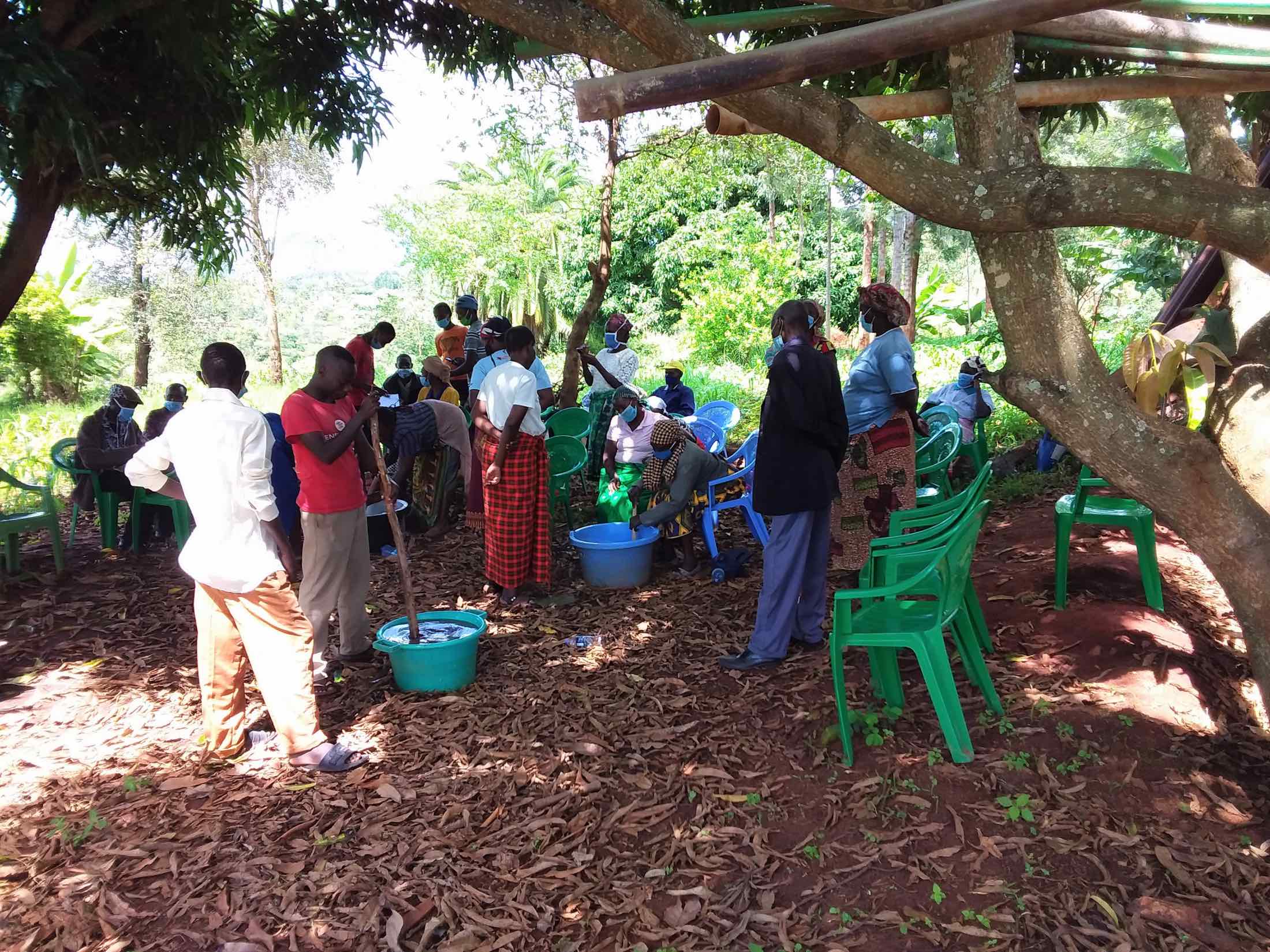The Ivumbu community is found in a reasonably high altitude area that has land and a climate favorable to agriculture. The majority of the 1,284 community members here are involved in subsistence farming - growing crops such as maize, peas, beans, mangoes, and bananas for family use. They then sell the surplus for profit. Other community members work hard to provide for their families through various formal and informal employment.
For most people in the Ivumbu community, the day starts at 6:00 am when people get out of their beds. Children prepare for school, and after that, livestock are either taken for grazing or tethered in the available pieces of families' land. After that, the parents take breakfast and settle for other activities. The wife in each family is generally tasked with going out and looking for water for her family's use, then coming back to run household errands. Husbands typically engage in the main income-generating activities for each family such as farming or casual labor.
The main water point for the community is a well and sand dam project that we supported in 2019. Our main entry point into the Ivumbu community has been the Ivumbu Irrigation Self-Help Group, which is comprised of households that are working together to address water and food scarcity in their region. Communities in this region are large and spread out, which is why we work with self-help groups for three to five years on multiple water projects to address their water needs.
A well can comfortably support 350 people. But for many people here, it still takes up to 2 hours to fetch water each day. By constructing a new well and sand dam 1.5 miles away from our previous project, people will not have to travel as far and wait as long to get water.
"Our community suffers from the challenge of lacking an adequate water source for all of us. We are seeking to work on more community water projects so that water can be close to all of us because some people currently walk for long distances to reach the sole water point in our village," said Mbithi Ndeto, a local farmer.
"Fetching water in our community has not been easy," added young teenager Ndunge.
"I often go looking for water after school to supplement what my mum had already fetched. Sometimes, the water point has many people, which necessitates long waits making the process difficult for me. Another water project would help address the challenges we are facing currently."
What we can do:
Sand Dam
After the community picked the ideal spot, our technical team went in and proved the viability by finding a good foundation of bedrock. Now, our engineers are busy drawing up the blueprints.
We are unified with this community to address the water shortage. As more sand dams are built, the environment will continue to transform. As the sand dams mature and build up more sand, the water tables will rise. Along with this sand dam, a hand-dug well will be installed to give community members a comfortable, safe way to access that water.
Building this sand dam and the well in this community will help bring clean water closer to hundreds of people living here.
Training
These community members currently do their best to practice good hygiene and sanitation, but their severe lack of water has hindered their fullest potential.
We will hold hygiene and sanitation training sessions with the Ivumbu Irrigation Self-Help Group and other community members to teach about essential hygiene practices and daily habits to establish at the personal, household, and community levels. This training will ensure that participants know they need to make the most out of their new water point as soon as the water is flowing.
One of the most important topics we plan to cover is handling, storing, and treating water. Having a clean water source will be extremely helpful, but it is useless if water gets contaminated by the time it is consumed. We will also emphasize the importance of handwashing.
The community and we firmly believe that all of these components will work together to improve living standards here, which will help to unlock the potential for these community members to live better, healthier lives.
We typically work with self-help groups for 3 to 5 years on multiple water projects. We will conduct follow-up visits and refresher training during this period and remain in contact with the group after all of the projects are completed to support their efforts to improve sanitation and hygiene.

 Sand Dam
Sand Dam
 Rehabilitation Project
Rehabilitation Project




























